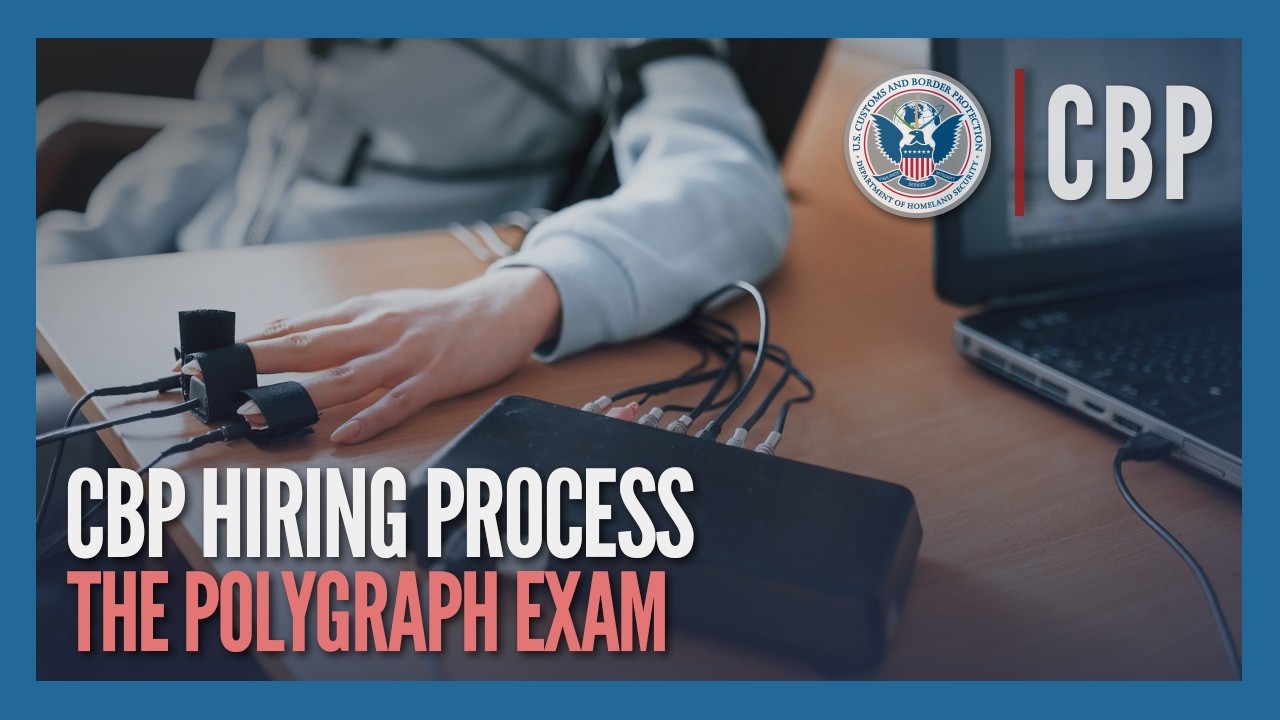
Understanding the CBP Polygraph Exam: What You Need to Know
Since 2010, nearly every Border Patrol Agent, CBP Officer, and Air and Marine Operations (AMO) agent joining the Customs and Border Protection (CBP) has undergone and passed a polygraph exam. While the thought of a polygraph might induce nervousness, it’s important to remember that many others have successfully navigated this process, and you can too. After completing your National Background Investigation (NBI) questionnaire and a pre-screening interview, a polygraph examiner will contact you to schedule your exam at a convenient time and location. Given the myths and misinformation surrounding the polygraph exam, it’s crucial to clarify its purpose and process.
What to Expect During the Polygraph Exam
During the polygraph exam, a CBP examiner will employ simple biometric sensors to monitor your physiological responses while asking a series of questions regarding your past behavior, personal connections, and personal integrity. The polygraph exam is not designed to trap you but to verify the truthfulness of your responses. If you’ve been honest on your NBI questionnaire, during your pre-screening interview, and with your examiner, the polygraph should proceed smoothly.
The entire examination process typically lasts around four hours, although the time spent on the actual questioning is considerably shorter. Most of the session will involve the examiner explaining the process and discussing the questions with you. This includes a thorough briefing on what to expect, a review of the questions that will be asked, and an opportunity to discuss any additional information or potential issues you might have. The examination itself is segmented into several short sessions, usually lasting 10 to 15 minutes each.
After the Exam: What Comes Next?
Upon completing the polygraph exam, you will receive a preliminary result, along with an opportunity to ask any questions you might have about the process. A quality control board will subsequently review the findings and finalize your result within a few weeks. So, how should you prepare for this exam? Firstly, it’s essential to understand that feeling nervous is a normal part of the process. The examiners are trained professionals who will guide you through each step, taking nervousness into account during the evaluation.
It’s important to note that nervousness alone won’t cause you to fail the exam. The polygraph examiners employed by the CBP are experienced, federally certified, and operate under strict oversight to ensure each applicant receives a fair and accurate assessment. Preparing for your polygraph exam involves straightforward steps: ensure you get a good night’s sleep before the exam, eat a healthy breakfast, and take any prescribed medications as you normally would. It’s also advisable to bring snacks and water to keep yourself comfortable during breaks, and to dress in comfortable, business casual attire. Arriving on time and setting aside the entire day for the exam will help ensure you have ample time for the process.
Do’s and Don’ts for the Polygraph Exam
If there are any changes in your circumstances between completing your NBI questionnaire and the polygraph exam, or if you need to clarify or correct any submitted information, it’s imperative to inform your examiner. Providing new information or clarification during your polygraph won’t result in failure; however, being deceptive or withholding information can. It’s crucial to cooperate with your examiner and follow their instructions closely, as they are there to assist you in understanding the test and what is being evaluated.
Avoid withholding information or adhering to any outside advice on how to “beat the test.” After the exam, your examiner will present you with preliminary results, which will be reviewed and validated by the quality control board within a few weeks. If your initial results are unsuccessful, the examiner will discuss the outcome and the reasons behind it. In cases where results are inconclusive, you may be requested to return at a later date to re-address certain questions and achieve conclusive results. If you pass, your examiner will notify you, and you’ll receive further instructions via email or phone regarding the next steps in the application process.
Honesty and Integrity: Key to Success
The key takeaway from this process is the importance of honesty and integrity. Concealing or omitting information on your NBI questionnaire, failing to provide truthful answers during the exam, or not cooperating with your examiner can have adverse effects on your results. The CBP is not seeking flawless individuals who’ve never made mistakes; rather, they are looking for candidates who demonstrate honesty and integrity. The polygraph exam is a critical component in assessing these attributes.
For more detailed information about the polygraph exam, visit our website at Careers.CBP.gov/S/Poly. To further explore career opportunities at CBP, consider joining our talent network or visit Careers.CBP.gov/S/Search-Careers to start your application process today.
Additionally, for those interested in understanding the broader implications of polygraph and lie detection technologies, you may want to explore resources on developing predictive modeling techniques in AI for effective lie detection. You can find more on this topic by reading our article: How To Develop Predictive Modeling Techniques In AI For Effective Lie Detection.
Understanding the CBP polygraph exam process is crucial not only for passing the test but also for embarking on a career with the CBP that is grounded in trustworthiness and ethical conduct. By approaching the exam with preparation, honesty, and an open mind, you can demonstrate your suitability for a role within this vital agency.
